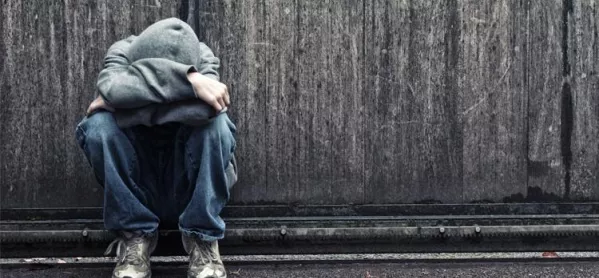Specialist support for those working with children most at risk of criminal or sexual exploitation, including teachers, will be available through a new £2 million Department for Education programme being launched today.
The “Tackling Child Exploitation Support Programme” is designed to improve how different areas respond to child exploitation - such as gang, “county lines” drug dealing, online grooming, sexual exploitation, trafficking or modern slavery.
The programme will help professionals to identify those young people most at risk from danger, improving the expertise and guidance available to them.
Knife crime: Teachers ‘scapegoated’ over rise in violence
Opinion: ‘The knife-crime epidemic demands a complete rethink of safeguarding’
Exclusive: Schools ‘can only do so much’ on knife crime, warns Ofsted
“Being safe at school and having a stable home life is the best form of protection for the children as they grow up - but we know that those who are the most vulnerable are the most at risk of exploitation of those who want to take advantage of them,” Damian Hinds, education secretary, said.
The risk of child exploitation
“We are all united in cracking down on those who try to lead vulnerable young people down a dangerous path, and the threats they face are multiple and complex. We must make sure that we work together and this new approach to better support teachers, police and health professionals will improve the expertise and guidance available to all those who care for and educate young people.”
Councils will be able to apply for bespoke support from the scheme to tackle specific threats in their local area, bringing social workers, police forces, schools, health services and charities together to improve how they respond to cases of exploitation, and learn from what works.
The preferred bidder to run the support programme has been named as a team made up of experts from Research in Practice, the Children’s Society and the University of Bedfordshire.
This team will be consulting on which support is required to meet local needs.
Support available, subject to contract, is likely to include:
- Support from experts in tackling particular areas of exploitation’
- Help for local partnerships in assessing their needs, strengths and weaknesses;
- Setting up research projects in local areas to build a better knowledge base about threats to children outside their family home.
Chief constable Simon Bailey, the National Police Chiefs’ Council lead for child protection, said that often children did not see themselves as victims, and were unlikely to speak to police, making it crucial for other professionals working with young people to know how to help keep young people safe.
Gangs and grooming
“The grooming techniques now being used by county lines gangs are similar to what we see in online sexual exploitation of children,” he said. “Often young people don’t see themselves as victims and are flattered by feeling part of a group and gifts, so they are less likely to speak to police.
“That’s why a joined up approach involving teachers, doctors, parents and others is crucial, and this new programme will bring all our efforts together to help keep our young people safe. Child protection is a key policing priority and we will continue to do all we can to pursue and prosecute criminals who exploit the vulnerable.”
And Dez Holmes, director of Research in Practice, echoed this view. She said: “It is increasingly clear that addressing different types of exploitation and harm requires local areas to break down siloes and work across geographical and professional boundaries.”
The news comes after the Home Office launched a consultation last month on whether there should be a new “legal duty “ for schools to take action to prevent violent crime.
But, following the launch of the consultation, Ofsted warned that schools can “only do so much” and teaching unions have raised concerns that schools are being “scapegoated” for knife crime.





